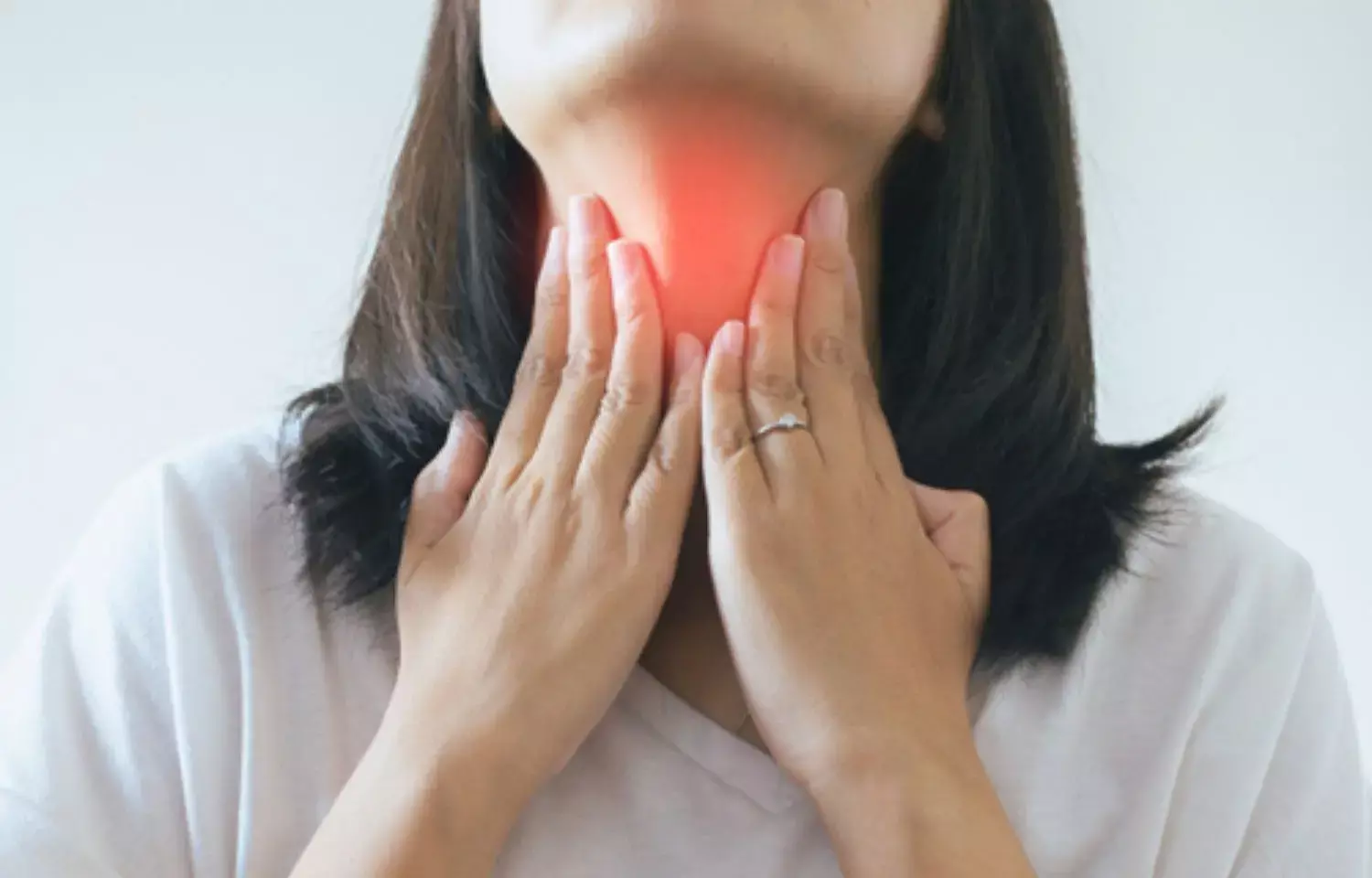- Home
- Medical news & Guidelines
- Anesthesiology
- Cardiology and CTVS
- Critical Care
- Dentistry
- Dermatology
- Diabetes and Endocrinology
- ENT
- Gastroenterology
- Medicine
- Nephrology
- Neurology
- Obstretics-Gynaecology
- Oncology
- Ophthalmology
- Orthopaedics
- Pediatrics-Neonatology
- Psychiatry
- Pulmonology
- Radiology
- Surgery
- Urology
- Laboratory Medicine
- Diet
- Nursing
- Paramedical
- Physiotherapy
- Health news
- Fact Check
- Bone Health Fact Check
- Brain Health Fact Check
- Cancer Related Fact Check
- Child Care Fact Check
- Dental and oral health fact check
- Diabetes and metabolic health fact check
- Diet and Nutrition Fact Check
- Eye and ENT Care Fact Check
- Fitness fact check
- Gut health fact check
- Heart health fact check
- Kidney health fact check
- Medical education fact check
- Men's health fact check
- Respiratory fact check
- Skin and hair care fact check
- Vaccine and Immunization fact check
- Women's health fact check
- AYUSH
- State News
- Andaman and Nicobar Islands
- Andhra Pradesh
- Arunachal Pradesh
- Assam
- Bihar
- Chandigarh
- Chattisgarh
- Dadra and Nagar Haveli
- Daman and Diu
- Delhi
- Goa
- Gujarat
- Haryana
- Himachal Pradesh
- Jammu & Kashmir
- Jharkhand
- Karnataka
- Kerala
- Ladakh
- Lakshadweep
- Madhya Pradesh
- Maharashtra
- Manipur
- Meghalaya
- Mizoram
- Nagaland
- Odisha
- Puducherry
- Punjab
- Rajasthan
- Sikkim
- Tamil Nadu
- Telangana
- Tripura
- Uttar Pradesh
- Uttrakhand
- West Bengal
- Medical Education
- Industry
Oral budesonide, an ideal option for drug treatment of eosinophilic esophagitis: Study

China: A new study, meta-updates the previous RCT results and confirms that oral budesonide is clinically efficient and safe for long-term use, in the treatment of eosinophilic esophagitis. The article, published in the Annals of Medicine, found that the effects of this drug may not be so dose-dependent.
The findings imply that it is safe to take budesonide for the long term and the drug is a relatively ideal option at present for drug treatment of eosinophilic esophagitis, so it is worthy of clinical applications.
Eosinophilic esophagitis (EoE) is a chronic, local immune-mediated inflammatory oesophageal disease, defined in clinical practices as symptoms of oesophageal dysfunction and by histology as eosinophils-dominant oesophageal mucosal infiltration. Effective treatment of EoE is necessary for controlling persistent symptoms, improving life quality, and decreasing the disease progression. At present, drug therapy, diet therapy, and oesophageal dilatation are treatment modalities for EoE.
Budesonide, a corticosteroid or steroid (cortisone-like medicine), can inhibit oesophageal epithelial inflammation, repair the mucosal barrier, and promote tissue remodeling, to reduce the incidence of oesophageal stenosis and food impaction. It is a relatively ideal option for drug treatment of EoE at present. However, there is still no expert consensus on the standardized application of budesonide in EOE treatment. Therefore, combined with a small number of early RCT results, evaluation of the effectiveness and safety of BOS application in EOE is needed
As new and reliable research evidence has emerged in recent years, Xiaopei Liu, Shaanxi University of Chinese Medicine, China, and the research team updated the meta-analysis using RCT trial results to evaluate the efficacy and safety of budesonide.
Researchers searched PubMed, Embase, and Cochrane Library databases for RCT literature on treating EoE with Budesonide. A total of 958 articles were retrieved, with 10 articles finally included, thus forming a sample size of 712 cases. Based on the results achieved with the Cochrane risk assessment tool, the research team evaluated the quality of the included literature to extract the data and performed the meta-analysis.
The main outcome of the meta-analysis,
• The Budesonide group performed better than the placebo control group in regards to histological remission of injuries [RR = 23.82];
• The Budesonide group was superior to the control group in terms of reduced eosinophil count [SMD = −1.34].
The authors conclude that budesonide is effective in reducing eosinophil count, improving the histological response, relieving clinical symptoms, and endoscopic abnormalities, and has good long-term safety as a treatment for EOE. Mounting high-quality RCTs have confirmed that the effects of this drug may not be dose-dependent, so 0.5–1.0 mg twice daily oral administration can be used as a reference for clinicians to choose recommended dose of budesonide in the treatment of EOE.
Further RCTs with large sample sizes are needed to clarify the above conclusions and determine the best dose of budesonide and the most suitable population, the authors wrote.
Reference:
Liu X, Xiao X, Liu D, Tan C. A meta-analysis on randomized controlled trials of treating eosinophilic esophagitis with budesonide. Ann Med. 2022 Dec;54(1):2078-2088. doi: 10.1080/07853890.2022.2101689
BDS
Dr. Hiral patel (BDS) has completed BDS from Gujarat University, Baroda. She has worked in private dental steup for 8years and is currently a consulting general dentist in mumbai. She has recently completed her advanced PG diploma in clinical research and pharmacovigilance. She is passionate about writing and loves to read, analyses and write informative medical content for readers. She can be contacted at editorial@medicaldialogues.in.
Dr Kamal Kant Kohli-MBBS, DTCD- a chest specialist with more than 30 years of practice and a flair for writing clinical articles, Dr Kamal Kant Kohli joined Medical Dialogues as a Chief Editor of Medical News. Besides writing articles, as an editor, he proofreads and verifies all the medical content published on Medical Dialogues including those coming from journals, studies,medical conferences,guidelines etc. Email: drkohli@medicaldialogues.in. Contact no. 011-43720751


